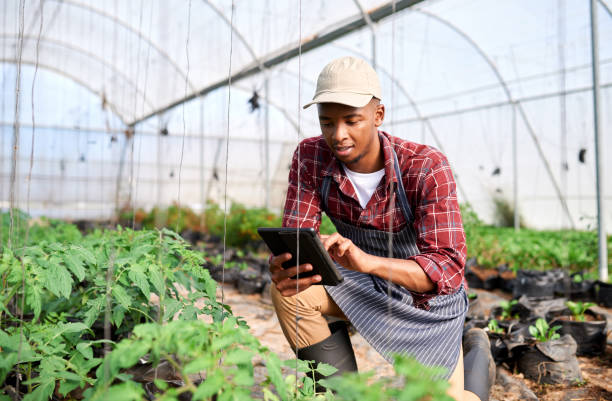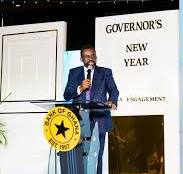First published: February 16, 2023 10.26am SAST
By: The Conversation
The African Union (AU) – made up of 55 member countries – has made significant progress with integrating the countries of the continent and giving them a voice in global politics.
Over the past two decades it has developed meaningful policies on peace and security, and trade, like the African Continental Free Trade Area. The African Union Commission helps set the agenda and represent African interests in global forums alongside important partners like the United Nations and the European Union.
But the AU still has a long way to go to achieve the political, economic and cultural goals set out in Agenda 2063, adopted in 2013.
I was an adviser to the union for over a decade and I am now the editor of the Yearbook of the African Union. In my view, progress in implementing the pan-African agenda has stalled. This is partially due to the challenging dynamics in how member states, the AU’s governing organs and external partners relate and pursue their interests.
The annual Assembly of African Heads of State and Government offers an opportunity to consider these issues and decide how to resolve them. In 2023, the summit will be held in Addis Ababa, Ethiopia, from 18 to 19 February.
Four factors stalling progress
I believe that four issues have stalled progress in the pan-African agenda. These issues relate to collective decision making, independent financing, division of labour and the adoption of common policies that would nurture strategic partnerships.
1. Member states have implemented too few collective decisions
The AU has adopted several important legal documents which member states are supposed to adopt for themselves, too. These documents – signed during heads of state and government meetings – must be ratified and then deposited with the union.
This usually happens very slowly and only very patchily. The reasons vary. According to one of the few academic inquiries into the subject, these reasons include a lack of political will, administrative lethargy and deficits in technical capacity among member states.
The AU has no power to force member states to carry out common decisions. It can only monitor compliance on three legal instruments, including the 2007 African Charter on Democracy, Elections and Governance).
To see progress in policy implementation, member states will have to think seriously about how to arrive at binding, transparent and enforceable mechanisms.
One way to do this would be through introducing a clear and limited window of time for ratifying legal documents. The union could also make it mandatory to report on the implementation of all decisions.
2. Independent finances have not been established
The AU’s ambitious plans depend heavily on external finance. Almost two-thirds of the union’s annual budget comes from donors, dubbed international partners.
Contributions from member states account for the remaining third. However, these tend to come late, or in some cases only in part. About 30 member states default partially or completely each year. In 2007, Algeria, Egypt, Libya, Nigeria and South Africa volunteered to make higher contributions. They account for 45% of the funds raised by African governments. Morocco, which rejoined the AU in 2017 after a 33-year absence, has replaced Libya as a major donor.
The AU’s financial reform process began in 2015 to make the organisation more self-reliant. Members committed to paying a 0.2% levy on various goods imported from outside the continent.
This money is expected to support 100% of the union’s operational budget (which includes maintenance and salaries), 75% of the programme budget (which includes implementation of policies) and 25% of the budget for union-led peace operations.
The union still must decide how the 100/75/25 target will be met by 2025. In the current budget (US$655 million for the 2023 financial year), the financial shortfall stands at US$201 million, a 31% deficit.
3. The division of labour between the African Union and regional economic communities remains unclear
Relations between the African Union and the eight officially recognised regional economic communities are based on two principles. These are subsidiarity (where, whenever possible, the regional level takes the lead) and comparative advantage (where the institution that’s better equipped to deal with a situation leads).
A 2017 report on the operations of the AU noted that the division of labour between the union and regional communities was “unclear”. This caused a duplication of roles and a lack of clear boundaries.
A new protocol on the relationship between the AU and regional economic blocs was adopted in 2020. But its details are yet to be finalised.
4. The instruments of a common global policy are either underused or underdeveloped
The AU is working to increase its bargaining power in global politics by developing common policies and nurturing strategic partnerships.
But because of member states’ insistence on sovereignty, few common policies have been developed. The most prominent one relates to the reform of the UN Security Council to give Africa more power.
In terms of strategic partnerships, the AU currently is focusing its activities on three multilateral (Arab League, European Union and United Nations) and five bilateral (China, India, Japan, South Korea and Turkey) partnerships. However, the frequency of meetings, scope of activities and meaning of the word “strategic” vary widely.
Opportunity for change
This year’s Assembly of African Heads of State and Government is expected to attend to these urgent items:
- implementing and domesticating union decisions
- the division of labour between the AU and regional economic communities
- how best to use the organisation to shape Africa’s place in the world.
The financial dependency issue will be tackled by the African Union Executive Council in July.
In my view, there is likely to be progress on some of these issues and stalling on others. What’s at stake is Africa’s place in the world and averting harm to the continent.



